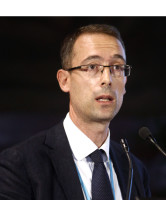Since the World Health Organization (WHO) declared the COVID-19 outbreak a Public Health, emergency of International Concern and then a pandemic, most governments in Europe and across the globe have rapidly adopted strict public policies restricting population movements in order to help curb the epidemic. These include the so-called ‘lockdown’ measures – school closures, border restrictions, the quarantining of confirmed or suspected patients, and ‘stay-at-home’ or confinement policies. The most stringent social distancing and confinement measures were pursued to contain infection spread at the population level and to protect high risk and vulnerable groups, including the elderly and people with chronic long-term health conditions. These groups are indeed paying the highest price for the COVID-19 emergency: they are at the highest risk of developing severe and deadly forms of COVID-19 (figures show lethality rates below 1% for subjects under the age of 50 vs more than 25% for patients over the age of 80, with higher mortality risk for those suffering from chronic diseases). These vulnerable populations’ other pressing healthcare needs remain pending due to health service delivery being stretched to capacity and they are at higher risk of experiencing the negative health and socioeconomic consequences of confinement and social distancing.
Italy’s Lombardy region - one of Europe’s richest and most productive regions – was among the first hit in Europe and on March-April 2020 accounted for more than 50% of all COVID-19 deaths in Italy. Prof. Gianluca Serafini, an AXA Research Fund grantee at the University of Genoa, proposes to focus on this particular region in order to quantify the real impact of the COVID-19 lockdown measures on the physical and mental health together with the socioeconomic status of older people with chronic diseases. Prof. Gianluca will do this by performing a record-linkage of a new survey with administrative data from the Lombardy Regional Health Service. A sample of 3,000 individuals representative of the Lombardy population aged 65+ will be interviewed over a 3-month period to investigate the impact of the COVID-19 pandemic restrictions on socioeconomic status, mental health, lifestyle factors, including smoking, alcohol, nutrition and physical activity, and access to care and treatments. “We will ask people about the lifestyle modifications they have made because of the lockdown”, Prof. Serafini says. “We also want to consider psychological variables such as insomnia, anxiety, depression, and loneliness.” The information collected will be then shared providing scientific events and publications, national and local reports supported by Lombardy Regional Health Service, Istituto Superiore di Sanità, Public Health Departments of the universities in Milan and Pavia (Lombardy region) which will merge key data on hospitalizations, both for COVID-related outcomes (direct impact of COVID) and for chronic long-term health conditions (indirect impact of COVID), covering the periods prior to and during lockdown.
The findings of Prof. Serafini’s research will help generate evidence-based recommendations for the upsurge and post-pandemic phase. Results will also provide insights into management successes and failures in one of the regions hardest hit by COVID-19.



